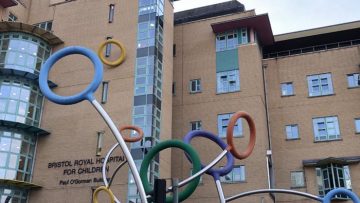Generating a causal understanding of interventions for COVID-19 requires a confluence of several topics: statistical modelling and causal inference, estimation of mathematical models, and working with Big Data. This raises several difficult challenges that current mathematical approaches have gained some limited traction on. This event explores the mathematical challenges and opportunities that the COVID-19 epidemic has highlighted, that will go on to be important into the future.
The special format will include a discussion panel where our speakers and audience can speculate on the importance of different mathematical research directions for the handling of the COVID-19 crisis and problems that have a similar character of blending modelling with large scale statistical inference.
This event is free to attend; however, please note that from January 2021 IMA events will be run on a fee basis in line with our usual conference programme.
Registration
Registration for this event is now closed.
Invited Speakers
Ritabrata Dutta (University of Warwick)
Ricardo Silva (University College London)
Sam Tickle (University of Bristol)
Talk Titles and Abstracts
Ritabrata Dutta (University of Warwick) – Optimal lockdown using Google mobility” (joint work with Susana Gomes, Dante Kalise and Lorenzo Pacchiardi)
A mathematical model for the COVID-19 pandemic spread, which integrates age-structured Susceptible-Exposed-Infected-Recovered-Deceased dynamics with real mobile phone data accounting for the population mobility, is presented. The dynamical model adjustment is performed via Approximate Bayesian Computation. Optimal lockdown and exit strategies are determined based on nonlinear model predictive control, constrained to public-health and socio-economic factors. Through an extensive computational validation of the methodology, it is shown that it is possible to compute robust exit strategies with realistic reduced mobility values to inform public policy making, and we exemplify the applicability of the methodology using datasets from England and France.
This talk would follow the results from this pre-print https://arxiv.org/abs/2006.16059. But I may present more results from our on-going works, so will decide later.
Ricardo Silva (University College London) – Some Thoughts of Computationally Intensive Causal Inference
One of the primary goals of causal inference is to predict what happens under interventions, from vaccines to policy-making and scientific claims in general. In many cases, there is no available randomised controlled trial, and assumptions about the causal structure of the world will be necessary if observational data is to be used. There are many families of assumptions that one could be used to infer causation from association in observational studies. The machinery required for deriving the consequences of such assumptions may need to go beyond standard mathematical analysis and rely heavily on algorithms and simulation methods. In this talk, I will focus on a case known as the instrumental variable scenario, where an imperfect experiment informs the causal relation between two variables that are confounded by unobserved factors and the best we can do is to bound the unknown causal effect. We will describe a class of algorithms to compute such bounds while allowing the practitioner a flexible language to express assumptions about the source of such confounding.
Joint work with Niki Kilbertus and Matt Kusner
Sam Tickle (University of Bristol) – Detecting Local and Universal Changes in Big Data: from Global Terrorism to COVID-19
At many points during the year, life has changed incredibly rapidly. Aside from the global changes that almost all of us have experienced, there has been wide interest in the dichotomy between, for instance, abrupt surges in case of COVID-19 in one locality versus another, for reasons of pandemic and policy. This simultaneous consideration of global and more local-scale changes motivates the use of existing techniques in changepoint detection.
I’ll discuss a new technique for detecting local and global changepoints in data intensive settings, as well as the original motivating example giving rise to this method: that of detecting changes in the probability of a terrorist attack using the Global Terrorism Database. Subsequently, this new method has now been successfully used in a project reporting to the Cabinet Office on the economic impact of Non-Pharmaceutical Interventions (NPIs) introduced by the UK government to combat the spread of COVID-19. I shall discuss the use of novel changepoint detection techniques and other approaches that we took during this project, as well as some pertinent outcomes.
Programme
12:00 – Introduction
12.10 – Ricardo Silva –‘Some Thoughts of Computationally Intensive Causal Inference’
13.00 – Ritabrata Dutta – ‘Optimal lockdown using Google mobility’
13.50 – Short Break
14.00- Sam Tickle – ‘Detecting Local and Universal Changes in Big Data: from Global Terrorism to COVID-19′
14.50 – Panel Discussion
15.30 – Finish
Organising Committee
Chair – Daniel Lawson (Bristol)



